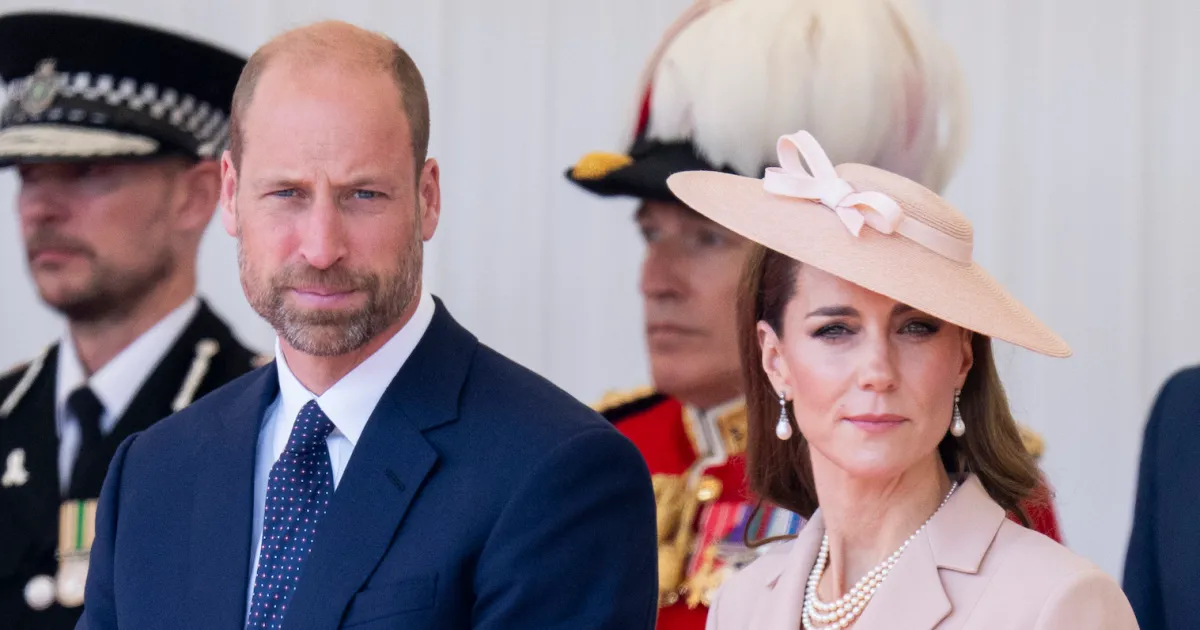
Princess Kate Middleton, like many parents around the world, is concerned about the overuse of screentime among babies and young children.
In an essay for the Royal Foundation’s Centre for Early Childhood, the Princess of Wales, 43, in collaboration with Professor Robert Waldinger, discussed the importance of human connection in a digital world. As a mother to three children — Prince George, 12, Princess Charlotte, 10, and Prince Louis, 7 — Kate said it’s her goal to teach kids “to better understand both their inner and outer worlds” through connection, setting them up for “a lifetime of healthier, more fulfilling relationships.”
“While new technology has many benefits, we must also acknowledge that it plays a complex and often troubling role in this epidemic of disconnection,” Kate wrote. “While digital devices promise to keep us connected, they frequently do the opposite. Our smartphones, tablets, and computers have become sources of constant distraction, fragmenting our focus and preventing us from giving others the undivided attention that relationships require.”
She continued, “We sit together in the same room while our minds are scattered across dozens of apps, notifications, and feeds. We’re physically present but mentally absent, unable to fully engage with the people right in front of us.”
Kate’s comments come after her husband, Prince William, shared their “strict” screentime rules for their children.
When chatting with Eugene Levy on his Apple TV+ series, The Reluctant Traveler, earlier this month, William, 43, said he and Kate have family dinner with George, Charlotte and Louis almost every evening.
“Yep, absolutely. Yep, definitely,” the Prince of Wales said. “So, we sit and chat, it’s really important. None of our children have any phones, which we’re very strict about.”
William said that the royal children play on the trampoline, participate in activities like netball or ballet, and horse around together.
“Keeping them busy with sports and being outdoors is really important,” he continued. “They’re trying to learn musical instruments. I’m not sure how successful we’re being with that. George loves his football and his hockey.”
In her essay, Kate referenced the Harvard Study of Adult Development, which began in 1938, and stated that “the best predictor of who would live a happy, healthy life” was the quality of their connections with other people.
As screens invade everyday lives, Kate said the youngest generation will be affected the most as their brains are still developing and constantly adapting to the digital world around them.
“For babies and young children, the pull of screens will be even stronger than for older children and adults, the habits more deeply ingrained as they grow. Yet this is precisely the period when children should start developing the social and emotional skills that will serve them throughout life,” she shared. “We’re raising a generation that may be more ‘connected’ than any in history while simultaneously being more isolated, more lonely, and less equipped to form the warm, meaningful relationships that research tells us are the foundation of a healthy life.”
In conclusion, Kate recommended that families be “fully present” with one another and prioritize dinners together, conversations and “moments of genuine eye contact and engaged listening.”
“The evidence is clear,” she wrote, “If you could invest in just one thing to help you and your family thrive, invest in the relationships you have with each other.”
Kate met Prince William at Scotland’s University of St Andrews in 2001 and they eventually wed in a lavish royal wedding at Westminster Abbey in April 2011. They went on to welcome Prince George in July 2013, Princess Charlotte in May 2015 and Prince Louis in April 2018. They have always prioritized their family, even more so as of late as Kate battled an undisclosed form of cancer. She is now in remission.